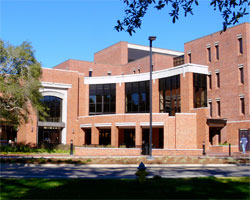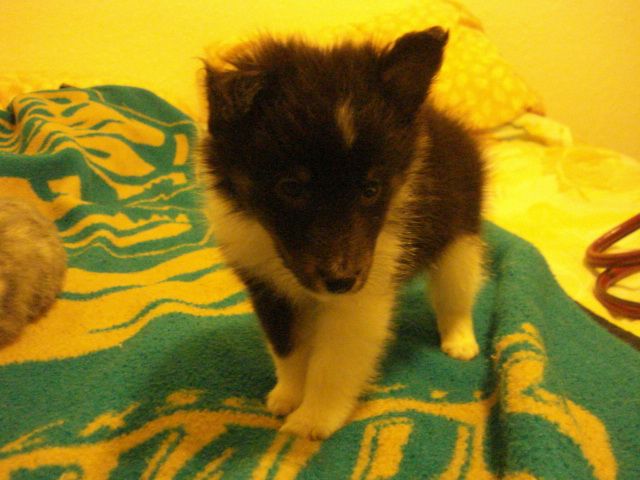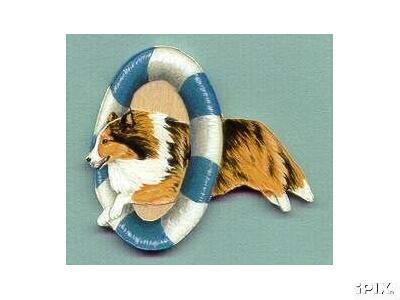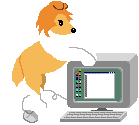
The NEW FSU Stone Building
Dr. Susan Carol Losh
3204 Stone Building
850-644-8778
850-644-4592 (EDUCATIONAL PSYCHOLOGY & LEARNING SYSTEMS)
Tuesday & Thursday 12:30-1:45 P.M.
3203 Stone Building
REACH ME AT![]() slosh@fsu.edu
slosh@fsu.edu
|
|
DEP 5068-01
SPRING 2014
|
|
|
|
|
|
|
Department of Educational Psychology
and Learning Systems
Florida State University

The NEW FSU Stone Building Dr. Susan Carol Losh 3204 Stone Building 850-644-8778 850-644-4592 (EDUCATIONAL PSYCHOLOGY & LEARNING SYSTEMS) |
OUR COURSE IS AT:
Tuesday & Thursday 12:30-1:45 P.M. 3203 Stone Building REACH ME AT |
PLEASE LET ME KNOW IMMEDIATELY
IF
YOU HAVE ANY DISABILITIES THAT REQUIRE SPECIAL ATTENTION!
The end of the semester reflective paper MUST be hard copy placed in my department mailbox. Papers under my office door may or may not be placed on my desk--where I may not be able to find them! (No one who has seen my desk would ever do such a thing.) I DO NOT OPEN OR ACCEPT EMAIL ATTACHMENTS (e.g., WORD documents) so please do not send them. PLEASE DO NOT SLIDE PAPERS UNDER MY DOOR
OR THE EDUCATIONAL PSYCHOLOGY & LEARNING SYSTEMS SUITE DOOR! There
is a good chance I will never see them.
|
During the semester, I may
ask for a digital copy of your work. For example, I upload all presentations
into Blackboard.
| ASSIGNMENTS |
For more information about Team Based
Learning please see: http://mailer.fsu.edu/~slosh/LifespanProjects.html
|
|
|
|
| 3
QUIZZES: Each individual and team based scored
ONLY the TOP TWO QUIZZES in each case will count toward your grade. |
January
28
February 20 March 20 |
Quizzes
are usually held at the beginning of a unit so readings should be completed
prior to the quiz. A set of terms to know will be provided before each
quiz.
Total = 25 percent |
| 3
TEAM BASED SHORT COURSE PROJECTS
ONLY the TOP TWO SHORT PROJECTS will count toward your grade Analysis of interaction video |
February 13 | Total = 25 percent |
| Learning theories application | March 27 | |
| Housing decision for elderly person | April 17 | |
| Team Assessment of Student Contributions Fall Semester | 5 percent | |
|
Applying developmental stages to your area; reflective paper |
APRIL 30 |
20
percent
|
| PRESENTATION | Topic
description due February 28. You'll also tell me whether you will do an
individual or group presentation.
ONE completed during the April 11-23 period (approximately) |
25
percent
|
See the links for more information to be posted. The project and presentation links will be updated during the semester to provide more detail and format specifications. Please complete readings according to the timetable in this syllabus and be prepared with assignments by their due date.
|
|
| REQUIRED TEXT |
When books go to a new edition, they often offer new topics and discard or rearrange the prior topics. Even when the chapter descriptive titles remain the same, new research is added. Please explore the outlets of your choice to obtain the CURRENT edition. Another possibility is for two students to share a text.
SOME NOTES ON READINGS AND ONLINE COURSE GUIDES:
My overarching goal is to have you become conversant with major ideas, influences and vocabulary in development, especially psychological, behavioral and social development.
I've created my required reading guides to serve as "lectures," basic orientations to the material we cover in each section. I also include some issues and controversies when I would like more coverage than I find in the course readings or when new research (e.g., on new USA marriage patterns) is released. The guides do not substitute for class attendance; they are to familiarize you with the material so that we can use class time for discussion, demonstrations, videos and video analyses, team-based learning, and your presentations.
I strongly recommend that you first read the associated and linked online guide for each of our 8 major topics. Then read the assigned chapters in Boyd and Bee. In some cases, you will have a team-based/individual quiz on that topic (see below) and these summaries will give you a good idea of what will also be emphasized in our readings. In other cases, you will have an in-class team based project for a course unit.
I always create the guide pages on the mailer server first and send the drafts up to the Internet as a "cyber-backup." That means that much material in the early drafts will be gone or drastically rewritten before the page is finished. I place a construction sign on the early drafts of each guide. Please do not use the pages until after the construction sign is removed. You will know the page is "done" and ready for use when I have linked it in Blackboard.
Be sure that you
are reading the 2013 DEP 5068-01 online pages
because occasionally I have not removed an obsolete link. The message at
the top will tell you the year.
| DATES | TOPICS TO BE COVERED |
| January 7-14 | Basic Orientation:
General Controversies and Issues, Methods
TWO ONLINE GUIDES BB
Begin general information about Infancy (Guide 2) BB
Chapter 3: Prenatal Development and Birth
|
| January 16-23 | Infancy
BB
Chapter 4: Physical, Sensory and Perceptual Development in Infancy
|
| JANUARY 23 | CROSS-CULTURAL SOCIALIZATION VIDEO |
| January 28-February 6 | Early
Childhood (Guide 3)
BB
|
| JANUARY 28 | |
|
~FEBRUARY 6 |
DATE MAY CHANGE! Director of the FSU CHILDREN'S DEVELOPMENT CENTER visit. |
| February 11-18 | Middle
Childhood (Guide 4)
BB
|
| FEBRUARY 13 | |
| February 20-March 4 | Adolescence
(Guide 5)
BB
|
| FEBRUARY 20 | |
| FEBRUARY 27 | PLUS sign up for presentation of project topic date. |
FEBRUARY 27 |
 Goin'
to the dogs: Learning theory demonstration Goin'
to the dogs: Learning theory demonstration |
| MARCH 10-14 |  SPRING
BREAK: NO CLASS SPRING
BREAK: NO CLASS |
| March 18-27 | Early
Adulthood (Guide 6)
BB
|
| MARCH 20 | |
| MARCH 27 | |
| March 27-April 8 | Revisiting
the Controversies: Midlife (Guide 7)
BB
|
| APRIL 10 | |
| April 10-22 | Late
Adulthood Basics (Guide 8)
BB
|
| APRIL 17 | |
| APRIL 24 | Our last day of class |
| DUE BY APRIL 30 by NOON | HARD COPY ONLY. LATE PAPERS WILL NOT BE ACCEPTED |
|
|
| 3204 Stone Building | Office Hours: Tuesday
2:00-4:00
Wednesday 3:00-5:00 and by appointment Please see me about other times. NOTE: If I have a conflict, I will announce that in class and on our Blackboard website. 850-644-8778 Voice mail available
|
|
|
 We
have a course Web site on the Internet. Our beginning Blackboard url is:
We
have a course Web site on the Internet. Our beginning Blackboard url is:
You must be registered for DEP 5068-01 and with an FSU ID username and password to access this Blackboard site.
I will post presentations, links, the grade center and more to Blackboard only.
ALSO YOU CAN CLICK HERE FOR THE SYLLABUS
AND GUIDES: http://mailer.fsu.edu/~slosh/LifespanOverview.html
|
|
I use plus and minus grading, throughout and for final grades.
Participation in class discussion and class attendance are a definite consideration, especially when a student is "between grades."
In addition, your participation in team projects is totally done in class, thus class attendence is critical for your grade..
Adherence to principles of essay organization, and the conventions of spelling and grammar is expected and understood on all written assignments. The course presentation MUST relate to the Lifespan in some way.
FSU policies on academic honesty are followed. Plagiarism, cheating, and other scholarly misconduct are totally unacceptable. As a rule of thumb, when in doubt, cite the source!
See this site for how I calculate final grades.
PRELIMINARY INFORMATION ABOUT THE PRESENTATIONS
Watch for updates to these pages throughout the semester.
 |
This page was built with
Netscape Composer.
Susan Carol Losh January
6 2014
